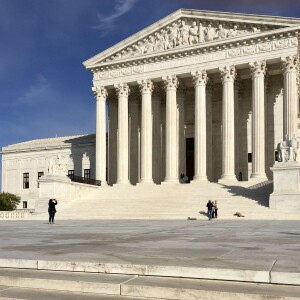
- Podcast Features
-
Monetization
-
Ads Marketplace
Join Ads Marketplace to earn through podcast sponsorships.
-
PodAds
Manage your ads with dynamic ad insertion capability.
-
Apple Podcasts Subscriptions Integration
Monetize with Apple Podcasts Subscriptions via Podbean.
-
Live Streaming
Earn rewards and recurring income from Fan Club membership.
-
Ads Marketplace
- Podbean App
-
Help and Support
-
Help Center
Get the answers and support you need.
-
Podbean Academy
Resources and guides to launch, grow, and monetize podcast.
-
Podbean Blog
Stay updated with the latest podcasting tips and trends.
-
What’s New
Check out our newest and recently released features!
-
Podcasting Smarter
Podcast interviews, best practices, and helpful tips.
-
Help Center
-
Popular Topics
-
How to Start a Podcast
The step-by-step guide to start your own podcast.
-
How to Start a Live Podcast
Create the best live podcast and engage your audience.
-
How to Monetize a Podcast
Tips on making the decision to monetize your podcast.
-
How to Promote Your Podcast
The best ways to get more eyes and ears on your podcast.
-
Podcast Advertising 101
Everything you need to know about podcast advertising.
-
Mobile Podcast Recording Guide
The ultimate guide to recording a podcast on your phone.
-
How to Use Group Recording
Steps to set up and use group recording in the Podbean app.
-
How to Start a Podcast
-
Podcasting
- Podcast Features
-
Monetization
-
Ads Marketplace
Join Ads Marketplace to earn through podcast sponsorships.
-
PodAds
Manage your ads with dynamic ad insertion capability.
-
Apple Podcasts Subscriptions Integration
Monetize with Apple Podcasts Subscriptions via Podbean.
-
Live Streaming
Earn rewards and recurring income from Fan Club membership.
-
Ads Marketplace
- Podbean App
- Advertisers
- Enterprise
- Pricing
-
Resources
-
Help and Support
-
Help Center
Get the answers and support you need.
-
Podbean Academy
Resources and guides to launch, grow, and monetize podcast.
-
Podbean Blog
Stay updated with the latest podcasting tips and trends.
-
What’s New
Check out our newest and recently released features!
-
Podcasting Smarter
Podcast interviews, best practices, and helpful tips.
-
Help Center
-
Popular Topics
-
How to Start a Podcast
The step-by-step guide to start your own podcast.
-
How to Start a Live Podcast
Create the best live podcast and engage your audience.
-
How to Monetize a Podcast
Tips on making the decision to monetize your podcast.
-
How to Promote Your Podcast
The best ways to get more eyes and ears on your podcast.
-
Podcast Advertising 101
Everything you need to know about podcast advertising.
-
Mobile Podcast Recording Guide
The ultimate guide to recording a podcast on your phone.
-
How to Use Group Recording
Steps to set up and use group recording in the Podbean app.
-
How to Start a Podcast
-
Help and Support
- Discover

Smith v. Arizona
The Sixth Amendment’s Confrontation Clause guarantees a criminal defendant the right to confront the witnesses against him. In operation, the Clause protects a defendant’s right of cross-examination by limiting the prosecution’s ability to introduce statements made by people not in the courtroom. The Clause thus bars the admission at trial of an absent witness’s statements unless the witness is unavailable and the defendant had a prior chance to subject her to cross-examination. Crawford v. Washington, 541 U. S. 36, 53–54. This prohibition “applies only to testimonial hearsay,” Davis v. Washington, 547 U. S. 813, 823, and in that two-word phrase are two limits. First, in speaking about “witnesses”—or “those who bear testimony”—the Clause confines itself to “testimonial statements,” a category this Court has variously described. Id., at 823, 826. Second, the Clause bars only the introduction of hearsay—meaning, out-of-court statements offered “to prove the truth of the matter asserted.” Anderson v. United States, 417 U. S. 211, 219.
Held: When an expert conveys an absent analyst’s statements in support of the expert’s opinion, and the statements provide that support only if true, then the statements come into evidence for their truth. Pp. 11– 22. (a)
Read by Jeff Barnum.
More Episodes
 2023-05-20
2023-05-20
 2023-05-20
2023-05-20
 2023-05-19
2023-05-19
 2023-05-15
2023-05-15
 2023-05-15
2023-05-15
 2023-05-08
2023-05-08
 2023-05-03
2023-05-03
 2023-04-27
2023-04-27
 2023-04-27
2023-04-27
 2023-04-24
2023-04-24
 2023-04-24
2023-04-24
Create your
podcast in
minutes
- Full-featured podcast site
- Unlimited storage and bandwidth
- Comprehensive podcast stats
- Distribute to Apple Podcasts, Spotify, and more
- Make money with your podcast
It is Free
- Privacy Policy
- Cookie Policy
- Terms of Use
- Consent Preferences
- Copyright © 2015-2025 Podbean.com



